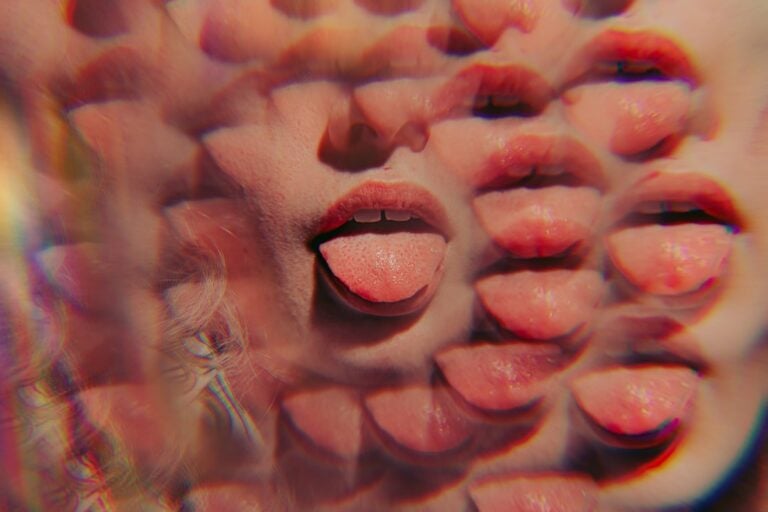How to Stop Your Mouth From Getting Dry While Sleeping: 7 Effective Methods
Understanding Why Your Mouth Gets Dry While Sleeping
Experiencing a dry mouth while sleeping can be both uncomfortable and disruptive. This condition, known as xerostomia, occurs when your body doesn’t produce enough saliva to keep your mouth adequately lubricated throughout the night. This often leads to challenges like bad breath, difficulty swallowing, and potential long-term oral health issues.
As hydration plays a crucial role in maintaining saliva production, it’s important to address the various factors contributing to dry mouth. Common culprits include dehydration, mouth breathing, certain medications, and underlying health conditions. Understanding these factors can help you implement effective strategies to combat dry mouth while sleeping.
The Symptoms of Dry Mouth at Night
Recognizing the symptoms of dry mouth can empower you to take action. Here are some common indicators to watch for:
– Persistent Dryness: A constant feeling of dryness in your mouth upon waking.
– Thick or Stringy Saliva: An unusual texture that could indicate dehydration or side effects from medications.
– Sore Throat: Waking up with discomfort in your throat can signal nighttime mouth dryness.
– Bad Breath: Reduced saliva allows bacteria to thrive, leading to unpleasant odors.
– Chapped Lips: Dry mouth often contributes to lip dryness and cracks.
– Difficulty Swallowing: A lack of saliva can complicate this fundamental action.
By being aware of these symptoms, you can begin to implement preventive measures. Now, let’s explore seven effective methods to stop your mouth from getting dry while sleeping.
1. Stay Hydrated Throughout the Day
One of the simplest yet most effective methods to prevent dry mouth while sleeping is to stay well-hydrated. Aim to drink at least eight glasses of water throughout the day. Here are ways to ensure you’re getting enough fluids:
– Carry a Water Bottle: This makes it easy to sip throughout the day.
– Set Reminders: Use your smartphone to send you reminders to drink.
– Incorporate Water-Rich Foods: Foods such as cucumbers, watermelons, and oranges contribute to hydration.
Avoid caffeine and alcohol, as they can exacerbate dehydration.
2. Use a Humidifier at Night
A humidifier can greatly help if your mouth gets dry while sleeping. Here’s how it can benefit you:
– Moisture in the Air: A humidifier adds much-needed moisture to the air, which can help keep your mouth and throat hydrated.
– Improved Sleep Quality: By preventing dryness, you’re less likely to wake up and need a glass of water, thus enjoying a more restful sleep.
– Comfort for Mouth Breathers: If you find yourself breathing through your mouth, humidified air can alleviate some discomfort.
3. Choose the Right Oral Care Products
Opting for appropriate oral care products can have a significant impact. Consider incorporating:
– Fluoride Toothpaste: This helps strengthen teeth and prevent decay, which can be more problematic with dry mouth.
– Alcohol-Free Mouthwash: Look for formulations specifically designed to increase moisture.
– Moisturizing Sprays: Products like Biotene can provide instant relief from dry mouth.
4. Avoid Certain Foods and Substances Before Bed
What you consume before going to sleep has a direct impact on your oral hydration. Here are items to avoid:
– Spicy Foods: These can irritate your mouth and exacerbate drying.
– Acidic Foods: Foods like citrus can worsen the situation by irritating salivary glands.
– Sugary Treats: Especially before bed, these can lead to increased bacteria, compounding dry mouth symptoms.
Instead, opt for milder, more neutral options in your evening meals.
5. Improve Nasal Breathing
Mouth breathing is a common contributor to dry mouth. Enhancing your nasal breathing can help reduce this issue. Here are some techniques:
– Nasal Strips: These adhesive strips can open your nasal passages to promote airflow through your nose.
– Nasal Sprays: Saline sprays can help clear blockages and keep nasal passages moist.
– Mouth Taping: This technique may encourage you to breathe through your nose while sleeping but should only be done after consulting a healthcare professional.
6. Chew Sugar-Free Gum or Use Saliva Substitutes
Stimulating saliva production can be a game-changer. Chewing sugar-free gum, especially varieties containing xylitol, can significantly help. Xylitol not only increases saliva flow but also combats harmful bacteria. Additionally, consider using saliva substitutes, like mouth sprays or gels, specifically designed to mimic the properties of natural saliva.
7. Review Medications with Your Doctor
If you suspect that your medications are causing dry mouth, consult your healthcare provider. Common medications known to induce dry mouth include:
– Antidepressants
– Antihistamines
– Blood Pressure Medications
Your doctor may offer alternatives that don’t carry the same side effects.
Conclusion
Addressing dry mouth while sleeping is vital for both comfort and oral health. By implementing these effective methods, you can significantly improve your nighttime experience. From staying hydrated to reviewing medications, small changes can lead to substantial improvements.
At Yawnder, we understand the nuances of sleep and oral health. Quality sleep is essential, and managing dry mouth can make a world of difference. By taking proactive steps, you’ll notice a significant enhancement in your overall well-being. Make these adjustments today to enjoy restful nights and refreshing mornings!

